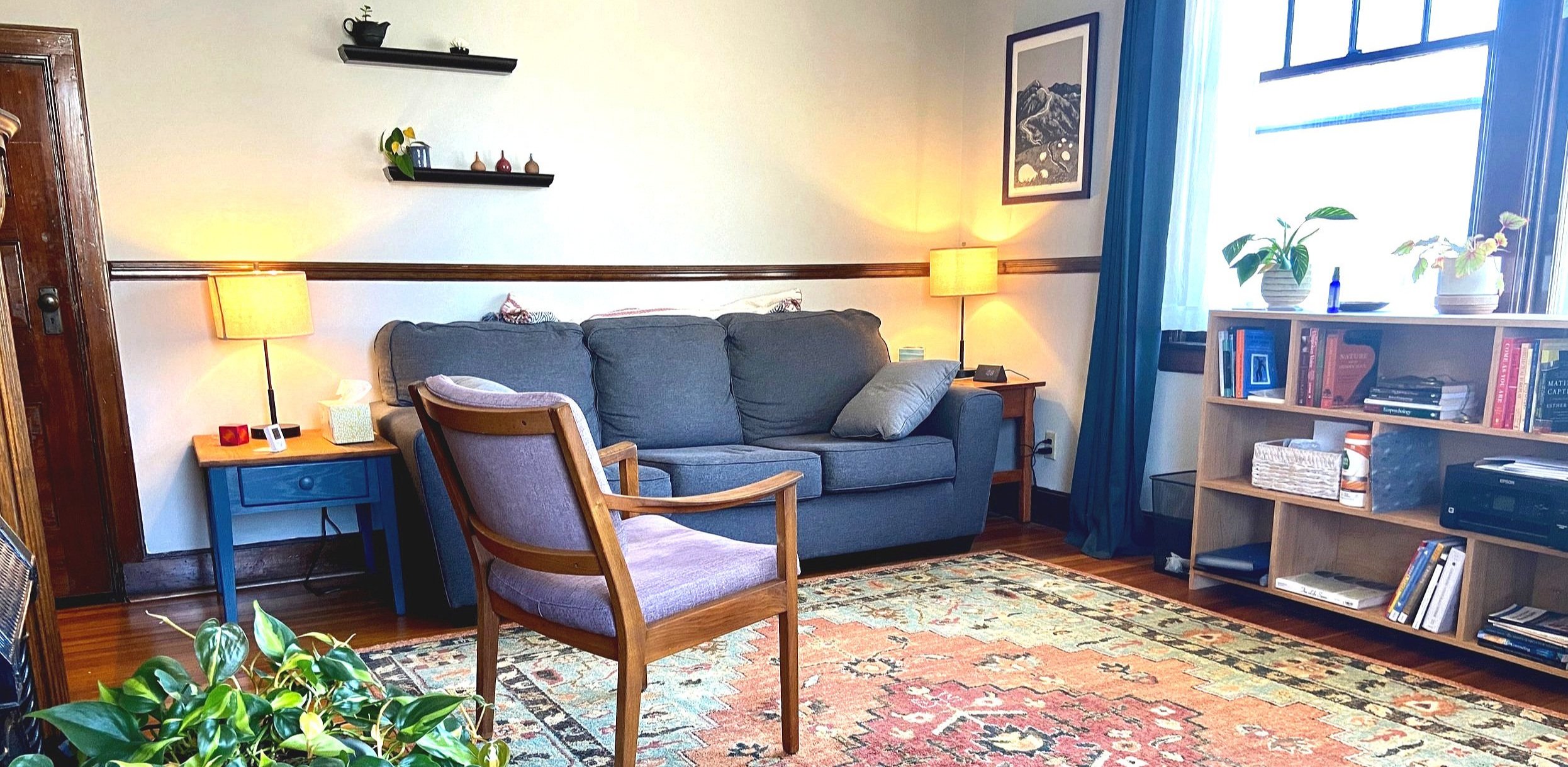
About the therapeutic process itself
Psychotherapy is a transformative process that leaves us with a great appreciation for our lives and for the immensity of human suffering. It’s much more than simply a reduction in daily symptoms of anxiety and depression: It means providing space for, acknowledging, making sense of, and working through deep aspects of our lives. It means recognizing more fully our unrecognized past, grieving painful limitations, exploring conflicted desire, and sustaining that which is real.
About psychodynamic therapy
Psychodynamic therapy is an evidence-based approach that works at the level of the unconscious. It sees symptoms as the manifestation of deeper concerns, and it operates on the clinical wisdom that symptoms go away or otherwise transform when they are listened to and understood for all they have to say. It is relational, adapted uniquely to each individual person, and is based on a long history of clinical experience often referred to as ‘depth psychology’, or ‘psychoanalytic therapy’. It is a vibrant and contemporary practice that has continually evolved to reflect the changing experiences of people today, encompassing issues of identity, fragmentation of society, and changing family structure.
Psychoanalysis
More intensive and somewhat more free-form than psychotherapy, traditional psychoanalysis addresses certain aspects of unconscious thought that are not easily reached by other means. This process, involving three to five meetings per week, is not for everyone but can be effective for some people. I am currently a candidate at the National Training Program in Contemporary Psychoanalysis at the National Institute for the Psychotherapies. Indicate if this is of specific interest to you when you reach out.
About ‘the right fit’
You have the right to work with someone who is deeply curious about you, who is compassionate, and with whom you feel you can make progress. Usually you know if you have found the right person when you discover that you can say anything to them and they will sustain their listening with respect. This discovery usually takes some time and always requires that you—the patient—risk venturing into the frightening terrain of the yet-unsaid to discover your therapist’s capacity to understand. In this process you should notice significant changes in how you understand yourself.
My approach to therapy differs somewhat depending on who I am meeting with, but generally I focus on listening instead of teaching, providing a balance between emotional nourishment and uncovering difficult thoughts, and a balance between finding meaning and sustaining the power of the unknowable. I draw primarily from the psychoanalytic traditions, but also from my own life experience, from Taoism, and from the work of Maria Montessori.
About insurance or not having it
I am an in-network provider with BCBS, Aetna, and the NC State Health Plan.
Insurance is not accepted for more intensive psychoanalysis.
If you plan to pay out of pocket for our sessions, my standard fee is $170 per session. I believe that therapy should be accessible to you regardless of how much money you have. For this reason, I maintain a small number of reduced-fee slots for those in need. Read more about my fees.
About office accessibility
*For those who wish to use closed captions during our video sessions, please let me know and I’ll make sure that we use Google Meet where I can provide live captions.
My office in Asheville is not currently accessible by wheelchair. There is a flight of stairs to reach the waiting room. The restroom is single stall, close to the therapy room, is on the same floor, and has accessible features.
You can email me or complete the form on my contact page to setup a consultation with me.
